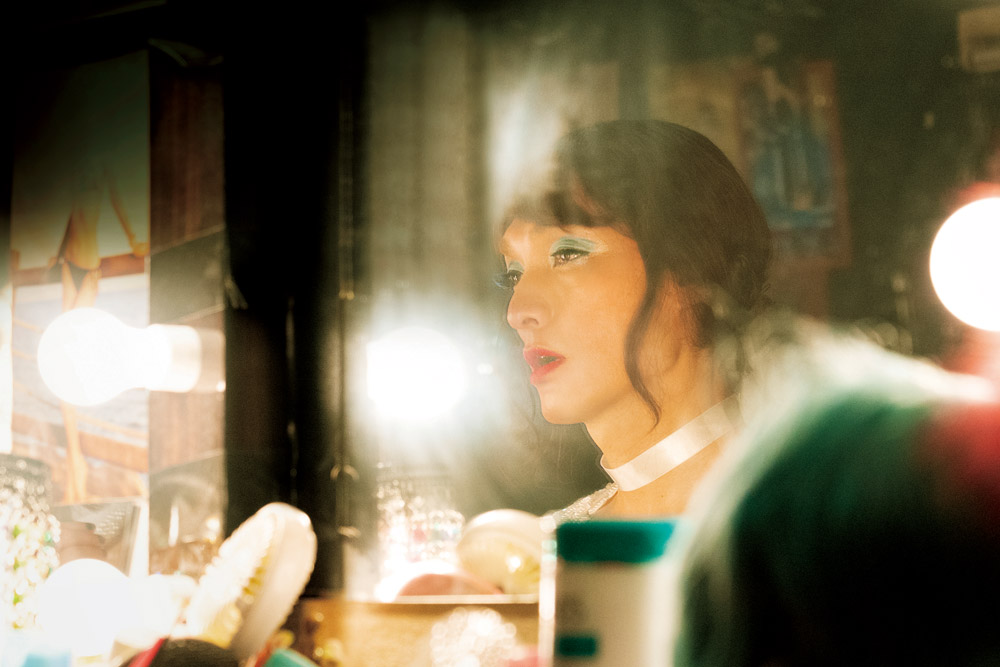![What does the future hold for film directors? “Midnight Swan” director Eiji Uchida talks about “the reality of the Japanese film industry” [CINEMORE ACADEMY Vol.8]](https://cinemore.jp/images/bdbfa2678e724243f0d9444cc113c0655d3bf92589e50fa914bb807dc65838a2.jpg)
What does the future hold for film directors? “Midnight Swan” director Eiji Uchida talks about “the reality of the Japanese film industry” [CINEMORE ACADEMY Vol.8]
``This is what I wanted to convey,'' he said during the interview.
The author was contacted by director Eiji Uchida, who is known for ``The Love of the Lowest '' (2016) and the Netflix original series `` The Naked Director '' (19). It wasn't long after we performed together at an event. I would like you to know more about the sense of crisis surrounding the current state of Japanese film, and the new trends that have just begun.
What do active film directors think in real time as they continue their activities? What overflowed from Director Uchida was a sense of humiliation as an artist and powerful words that could be called the ``smoke of revolution.''
This interview is being brought to you as part of ``CINEMORE ACADEMY,'' a project to learn from creators how to make movies. Following director Michihito Fujii of `` The Brightest Roof in the Universe '' (20), we welcome director Uchida as a ``lecturer'' and hope to approach the ``real'' nature of manufacturing.
Index
- A movie director promoting his own work
- An environment where it is difficult to build a relationship of trust with actors
- Japanese movie director royalties
- Directors and actors are not objects.
A movie director promoting his own work
Q: Thank you for speaking with us this time. It's a great honor because it's rare to have a director himself talk about the problems in the film industry.
Uchida: Thank you very much. That's right, it's a difficult topic to talk about (bitter smile). In Japan, there is still a tendency that ``film directors should only think about the work.'' There is no need to think about anything other than directing. But that's just a story up until now. Times have changed, and I think directors should think about various things from now on.
Q: Director Uchida himself is the ``propaganda chief,'' and you are very active in public relations activities.
Uchida: Just the other day, someone laughed at me and said, ``You're working hard.'' But I'm working harder than anyone else.
A common pattern with movies like this is, ``It was interesting and I tried my best, but it just didn't turn out to be a hit.'' It's been like this for decades, and it's frustrating to think, ``It's more profitable to cast 20 famous people and make a live-action adaptation of a best-selling novel,'' but I wonder if that direction will continue in the end. …. So I want to do some advertising myself and somehow get it back on track. It's meaningful to make it because it's an indie. It's not money. I think we have to break away from that way of thinking.
I personally think that ``Midnight Swan'' was given the green light in terms of content, and that star Tsuyoshi Kusanagi appeared in it. That's why I want to set a precedent for future works.

Actors, comedians, writers, and people at the center of the entertainment industry are supporting us, and not only this work, but also director Fujii's `` The Journalist '' (2019) and director Rikiya Imaizumi's ``Ai ga Nan'' are supporting us. In Japan , there is finally a trend of famous actors appearing in interesting independent works such as ``Da'' (19). I think Tori Matsuzaka often appeared in ``The Journalist.''
Takayuki Yamada is also very particular about being an actor. Mr. Yamada's appearance in ``Naked Director'' reflects his way of life as an actor. I'm glad that more and more actors are taking on challenges, such as Kusanagi-san in this work and Matsuzaka-san in ``The Journalist''. So the director has to work hard too.
Q: Mr. Yamada has produced films such as " Day and Night " (2019), and works directed and produced by actors such as " Soiree " (2020), produced by Kyoko Koizumi and Kosuke Toyohara. is also increasing.
Uchida: It feels like there is a flow. Overseas, it is common for successful actors to work as producers and train young actors. I also think that the increasing number of small and medium-sized companies that facilitate quick decision-making, such as Mitsunori Kawamura of Star Sands, is a big factor. If it's a major company, it usually takes two years to get the go- Signs, and during that time there are times when things fall through or are dropped.
Compared to other countries, we are still behind in terms of art and culture. That's why we have to speak out more and more, and we want as many people as possible to know about this.
An environment where it is difficult to build a relationship of trust with actors

